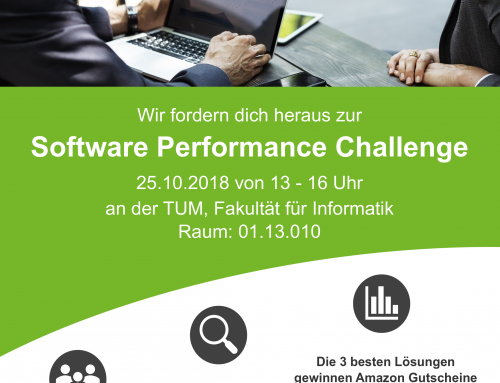Am 27.06.2025 wird Dr. Andreas Brunnert sein neuestes Paper zum Thema „Evaluating the Accuracy of Software Energy Consumption Models for Java Applications at Process and Transaction Levels“ beim International Workshop on DevOps for Sustainability (DevOpsSustain) 2025 vorstellen, ein Pre-Print des Artikels ist auf unserer Webseite verfügbar (hier) und eine kurze Zusammenfassung des Inhalts finden Sie hier:
Evaluating the Accuracy of Software Energy Consumption Models for Java Applications at Process and Transaction Levels
The energy consumption of software systems is hard to quantify because software does not consume energy itself but rather the hardware that it runs on. To address this challenge, technologies such as the Intel Running Average Power Limit (RAPL) interface have been developed to measure the energy consumed by various hardware resources at runtime. Additionally, specialized tools like JoularJX have been created to attribute RAPL measurements to individual software systems and their components. However, these tools are typically limited to software running directly on a server, without virtualization or containerization. In virtualized or containerized environments, direct energy measurements are only possible if the hypervisor or container runtime forwards this information to the guests—a practice not widely adopted, particularly in cloud environments. In such cases, energy consumption models are used to estimate software energy usage based on other metrics, such as CPU, memory, storage, or network utilization. One recently released tool following this approach is the OpenTelemetry Java-Agent extension (OTJAE), making it suitable for environments where direct measurements are not feasible. This study aims to evaluate the accuracy of JoularJX and OTJAE, along with their underlying models, in calculating energy consumption at both the process and transaction levels of Java applications. Both models under examination are based on CPU demand measurements. We are able to show that the model predictions match actual measurements obtained from a hardware server with high accuracy in medium and high load scenarios (50% to 100% CPU utilization) but vary significantly for lower load levels.
Der International Workshop on DevOps for Sustainability (DevOpsSustain) 2025 findet am 27.06.2025 in Trondheim (Norwegen) statt. Weitere Informationen über den Workshop und über die Möglichkeiten zur Registrierung finden Sie auf der Workshop-Webseite: https://devopssustain.github.io/ws2025/
Wir freuen uns Sie dort zu treffen!





